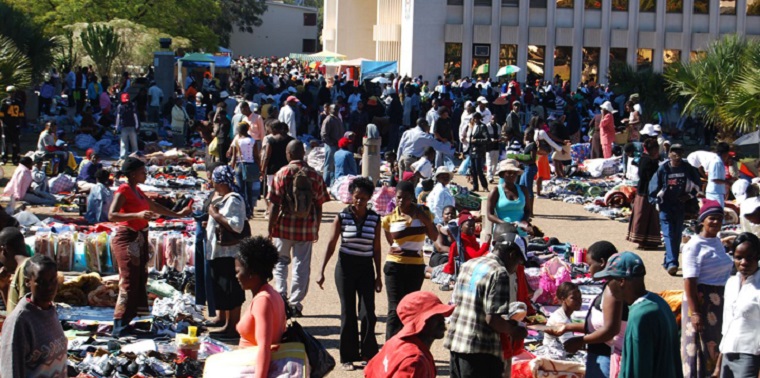Most Zimbabwean entrepreneurs have found themselves locked up into business for the sake of survival or feeding their own families (the subsistence way) due to various reasons. This is evidenced by a lot of players within the informal manufacturing and retail sector, Artisanal Small Scale Mining and Agriculture. Are we thinking of sustainability as an entrepreneurial community and nation at large? What are the effects of the subsistence way of doing business and what are the key steps to be taken to reshape our way of doing things? This you will all find out in this article.
The November publication is now ready to take you to exactly where you want to be – with your target market. Choose from 5 customized ad packages in our first (free) digital publication which will be launched by the 10th of November, featuring quality content that your customers can’t afford to miss. Connect with us through the mail ads@entremag.co.zw or fill in your details on the advertise page Thank you.
Some facts/stats surrounding this assessment
- National Average yield is 0.2 to 0.8 tonnes per hectare, expected average is about 5 tonnes per hectare. (Mashongera, www.reliefweb.int 2014)
- An estimated 500,000 Zimbabweans engage in ASM directly (Training Handbook for Artisanal and Small-Scale Miners in Zimbabwe MARCH 2019)
- In 2016, at least 2.7 million people were making their living in the informal sector. (A Study by CZI, www.gga.org)
What is contributing to the subsistence way of doing things?
A number of things we can control as entrepreneurs has seen us locked up in the subsistence mindset. Business is there to grow and self-sustain, however we sometimes lack the wisdom to reinvest profits and diversify. Growing and diversifying means more efficiency, less risk and more profits. We are also ignorant to an extend of not deepening our knowledge and skills related to our sectors of interest, the more we understand the business we are in, the more we see opportunities to pursue. Let’s have an entrepreneurial mindset aimed at resuscitating the economy, employ communities and sustain the nation at large.
That having been said, entrepreneurs are working under an unsupportive environment. In 2019, Zimbabwe was ranked 140 among 190 economies in the ease of doing business and 158 of the least corrupt out of 180 countries (www.tradingeconomics.com). Whilst Zimbabwe has been improving on the ease of doing business, more can still be done. To add on, we have all become corrupt in Zimbabwe and it has done so much damage to us as a Nation. Corruption doesn’t create a competitive playing field for business, hence delivery of substandard goods or services. Economic hardships are also a contributing factor to the subsistence mindset that has developed in entrepreneurs. A number of entrepreneurs fail to scale up because of difficulties in acquiring new, modern and efficient machineries. Inflation has been eroding their savings and foreign competitors have always been having a competitive advantage due to high costs of production in Zimbabwe. Banks hardly offer business loans and start-up capitals to entrepreneurs, this has just created an unsupportive environment that has undoubtedly led to the subsistence way of doing things.
What are the effects of doing things from a subsistence perspective?
Being locked up in the subsistence way of doing business has seen us lose a lot of revenue due to not adding value to our agricultural produce and beneficiating our minerals. Whilst the 2021 Pre-Budget paper has highlighted creation of appropriate funding models for companies and entrepreneurs pursuing value chains of different resources, there is strong need for transparent implementation of that objective. Our fortune as a nation lies in our resources and it should be our mandate to beneficiate them.
Doing business for subsistence reasons has resulted to low productivity in the Zimbabwean agricultural sector. We don’t invest enough in our projects and we don’t think of ways to reduce risk. We have a number of water bodies capable of irrigating farm land but our subsistence mindset has seen us lose a lot from climate change. This has resulted to importation of common commodities like cereals just because the majority are doing business for subsistence purposes, let’s re-imagine our approach to projects and sustain the nation.
Doing business for subsistence purposes has hindered the growth of economy. Jobs are not created, money hardly circulates and foreign currency is not generated.
What needs to done?
We all have a role to play in building a self-sustaining Zimbabwe, entrepreneurs let’s collaborate whenever need arises, a number of aspiring entrepreneurs complain of rejections from the established ones, we deserve to be heard and some have brilliant ideas that will turn out to be your competition if you don’t listen to them. Let’s change our mindset and focus on growing our portfolios, create jobs and sustain the nation. They is high need of entrepreneurial events and programs which instills the right mindset in all aspiring and established entrepreneurs.
There is high need of collaboration between the government and entrepreneurs. The dream of a new Zimbabwe can only be achieved if we empower local entrepreneurs, there is therefore need to continuously craft and implement laws that empower local entrepreneurs and at least creates an equal ground between them and international firms. We can equally exploit our resources as same as foreigners. Corruption has become a cancer in Zimbabwe that needs immediate attention, almost everyone is involved in it knowingly, let’s all be patriotic and curb corruption.
Various funding models can also be brought in by both private players and the government in curbing inaccessibility of funding. Brilliant ideas are taking long to implement due to lack of financial resources and our industries have become unproductive. Let’s all support entrepreneurship, that’s where the solutions of our myriad problems as a country are in.








